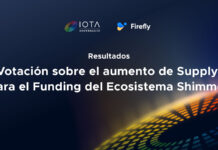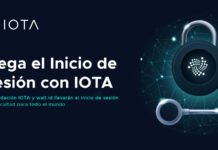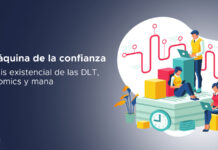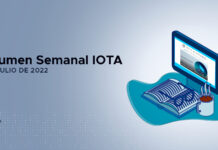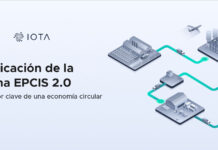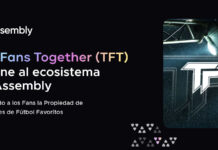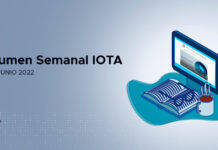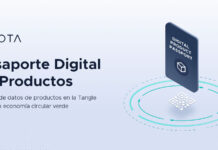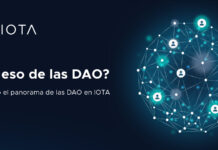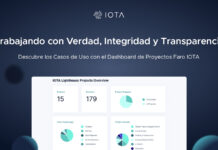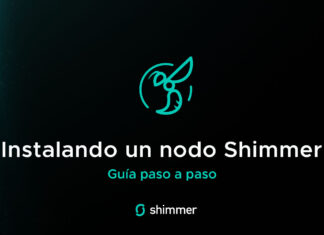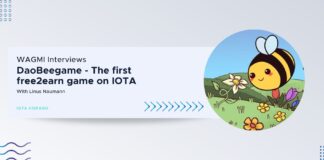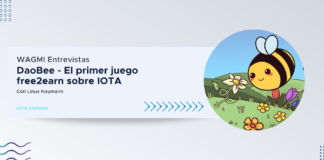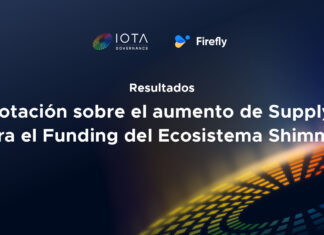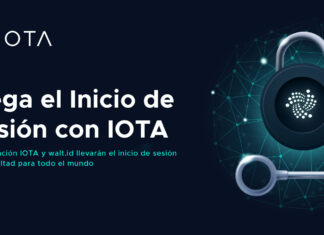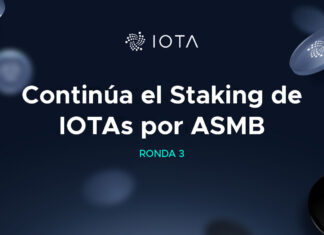
Since the release of the mobile Trinity Wallet some weeks ago, I’ve been really interested in learning more about the people who brought this project to life.
In today’s interview let me introduce you, for those who don’t know him yet, to Rajiv Shah. One of the youngest developers in the IOTA Ecosystem. Not only is he part of the main Trinity dev team, but also he developed one of the very first reattachers and is a moderator of the IOTA channel on Discord.
Nicolás Pedroso
Writer & Editor, IOTA Hispano
If you like what we are doing help us to continue working! Donate: http://www.iotahispano.com/donate/
Rajiv, tell us a bit about your background
I started working with computers from a fairly young age. My first programming-like experience was probably in 2nd grade when I first learned about an app called Scratch, where you could drag-and-drop code blocks to make a simple program such as an animation or a game. About a year later, I did an after-school camp that introduced me to Lego robotics. I loved building things with Legos at that time, and the thought of automating these structures amazed me. However, I didn’t do any “real coding” until around 8th grade. I went to a summer camp which taught a course similar to AP Computer Science. In most American high schools, this would be offered as an elective course which you could take if you wanted to. My school did not offer it at that time, so I decided to take it at a summer camp. After taking that course, I realized how interested I had become in programming and computer science. However, since I had just started high school, I was afraid I wouldn’t have enough time for it.
When did you get involved in the DLT’s world? What was the first cryptocurrency you bought?
I first found out about Bitcoin in 2013. I never bought any because my parents thought Bitcoin was used by criminals to buy drugs online (which was how the media portrayed it at the time). After Mt. Gox collapsed, I assumed cryptocurrency was dead. Around April 2017, I wondered if Bitcoin still existed. To my surprise, it was worth around $2000. After a closer look, it seemed the cryptocurrency industry was booming with other cryptocurrencies like Ethereum and Ripple. My first cryptocurrency was probably Bitcoin, I bought a small amount to play around with.
When did you found out about IOTA and when did you start developing with it?
I think I first came across IOTA in June 2017. I loved the feeless, scalable, miner-free nature. After looking around at the things people were developing with IOTA, I wanted to try developing something myself. I think that was in August.
What would you recommend to someone who wants to start developing with IOTA but doesn’t have the programming skills?
I’ve heard people ask things such as “I don’t know how to program, how can I learn?” Or “Where can I get help if I’m learning by myself?”. The answer is: the Internet. If you don’t know how to do something or you get an error message you’ve never seen before, just type it into Google. There’s a 95% chance that someone has already asked that question. Every developer can probably agree that StackOverflow is your best friend whenever you need help. Other great resources are websites such as W3Schools and Codeacademy. For IOTA specifically, the best place to get started would be the new website at http://docs.iota.org, in particular the Introduction and JavaScript library.
You developed one of the very first reattachers. We would like to know what was the motivation behind it. Why did you decide to do it?
I had originally envisioned to make a service where you could pay a tiny fee for a server to do the PoW for you. I spent a lot of time in the #help channel in Slack. The one thing that bothered me was that users would sometimes complain the PoW was taking too long, especially on computers with relatively underpowered CPUs. I also experienced long times for PoW, so I could understand their experiences. At the same time, I also wanted to create my first project using the IOTA JavaScript library. First, I started with a page where you could simply paste in your transaction hash and it would be reattached on my node. I also tried to work on a page where you could make a transfer and have the PoW done remotely, but was concerned about security and didn’t have enough time to fully develop it.
You also participated in the development of Trinity. What was your role in this project?
I first got involved in Trinity development so that I could help with translations. However, I immediately was interested in the code behind it. I first started submitting pull requests to fix small bugs or typos and then became more and more involved in the code. Today, I mainly focus on adding features (such as QR code sharing or root detection) or fixing bugs and crashes.
Working as a team usually requires a great consensus, were there times when reaching an agreement was difficult? Do you have some anecdotes that happened during your time working on this project?
I don’t think I remember any particular times when reaching an agreement was difficult. If there was a disagreement about how something should be done, we would normally weigh the pros and cons of each option and decide from there. What I can say is that we work very well as a team in my opinion. The team has been really patient with me as I learned and made mistakes, and working with them has taught me at least ten times more than I ever would have learned in a computer science class.
Where do you see IOTA in five years time?
I’m not really sure if I can envision what the world will look like in five years because it’s already changing so fast. For that reason, I don’t know what IOTA will be like in five years. However, I think the potential use cases, partnerships, and projects that are being developed in the IOTA ecosystem are incredible. One can definitely see that IOTA is a versatile technology. From use cases such as charging your electric car to measuring particulate matter in the air, IOTA is definitely a force to be reckoned with and I’m confident that we’ll see a lot more of it in our everyday lives.
What do you think are the main obstacles between IOTA and mass adoption?
I think the main obstacle for mass adoption is getting an idea from proof-of-concept to production, real-world use. Consider the examples I mentioned earlier, electric car charging and measuring PM2.5 in the air. While they are great proofs-of-concept, getting them to the real world is a struggle. In particular, I mean things such as getting regulatory approval and collaborating between different organizations. Nonetheless, I’m confident that once these obstacles are overcome, we can achieve mass adoption.
If you like what we are doing help us to continue working! Donate: http://www.iotahispano.com/donate/




